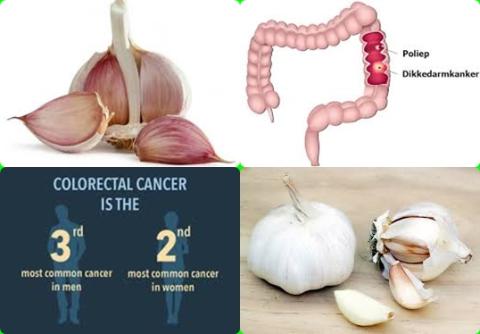
Objectives:
Does dietary intake of garlic reduce risk of colorectal cancer?
Study design:
This review article included 11 studies involving 12,558 cases (persons with colorectal cancer).
There was no notable evidence of publication bias.
Results and conclusions:
The investigators found for the highest versus the lowest garlic consumption categories, a significantly reduced risk of 20% [integrated relative risk = 0.80, 95% CI = 0.69 to 0.91] for colorectal cancer.
The sensitivity analysis revealed no notable alterations of the integrated results.
Significant means that there is an association with a 95% confidence.
The investigators found in case-control studies for the highest versus the lowest garlic consumption categories, a significantly reduced risk of 29% [relative risk = 0.71, 95% CI = 0.60 to 0.84] for colorectal cancer.
Significant because relative risk of 1 was not found in the 95% CI of 0.60 to 0.84. Relative risk of 1 means no risk/association.
The investigators found in cohort studies for the highest versus the lowest garlic consumption categories, a non-significantly reduced risk of 1% [relative risk = 0.99, 95% CI = 0.80 to 1.23] for colorectal cancer.
Non-significantly because relative risk of 1 was found in the 95% CI of 0.80 to 1.23. Relative risk of 1 means no risk/association.
The investigators concluded that dietary intake of garlic could reduce risk of colorectal cancer. Could reduce because the risk was not significant in cohort studies.
Original title:
Garlic intake and the risk of colorectal cancer: A meta-analysis by Zhou X, Qian H, […], Zeng L.
Link:
https://www.ncbi.nlm.nih.gov/pubmed/31895803
Additional information of El Mondo:
Find more information/studies on significantly/cohort studies, garlic consumption and colorectal cancer right here.